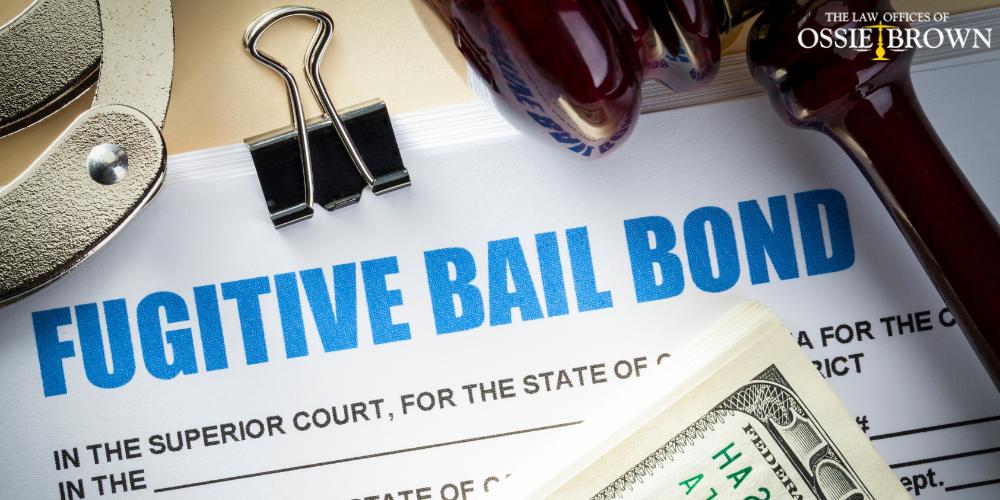Domestic abuse battery is characterized by violent physical behavior between household members. Domestic abuse frequently involves sexual, financial, and psychological abuse as well. Anyone who is caught committing these types of abuse towards another member of the household can face a domestic violence charge. Many offenders are able to get out of jail early on a bail bond while they wait for their first appearance in court. Unfortunately, it’s very common for offenders in domestic violence cases to reoffend while they’re out on bail. This is exactly what happened to Gwen Salley – a domestic abuse victim in Stonewall, Louisiana. Her estranged husband kidnapped her, fatally shot her, and then fatally shot himself while he was out on bail. This tragic domestic violence case led to the passing of Gwen’s Law in 2017. Below, our Baton Rouge criminal defense lawyers explain how Gwen’s Law changed the way the bail bond process works in the state of Louisiana.
If you are facing a domestic violence charge in the state of Louisiana, you need a Baton Rouge domestic violence attorney from The Law Offices of Ossie Brown on your side. Proper legal representation from our law firm will help you achieve the best case outcome possible. Call 225-343-1111 to schedule a free consultation with a domestic violence attorney today.
What is Domestic Violence?
Louisiana law states that domestic abuse battery occurs when a household member uses force against another household member. A domestic violence offense can occur between roommates, husband and wife, boyfriend and girlfriend, ex-boyfriend and ex-girlfriend, and ex-partner and child. The most common type of domestic violence incident, though, is between spouses, dating partners, and ex-spouses or ex-dating partners.
Common examples of use of force can include:
- Physical Domestic Violence is hitting, punching, slapping, burning, shooting, strangling, or stabbing, all of which can result in serious bodily injury or death.
- Emotional Domestic Violence is basically psychological abuse. Examples of this type of abuse can be threatening physical injury upon the victim or their loved one(s), stalking, gaslighting, public humiliation, verbal abuse, etc.
- Sexual Assault occurs when someone engages in sexual behaviors without the other party’s knowledge or consent.
- Financial Abuse occurs when a household member has full control over another household member’s money, bank accounts, credit cards, assets, etc.
Most domestic violence cases involve one or more of these abuse tactics.
How Often Does Domestic Violence Happen in the U.S.?
More than 10 million Americans suffer a physical injury from a family member or a partner every single year according to data from the National Coalition Against Domestic Violence (NCADV).
The majority of domestic violence victims are women. According to the same source, 1 in 4 women will experience some form of domestic violence in their lifetime whether that be physical, sexual, emotional, and/or financial abuse. Men can be domestic violence victims too. In fact, approximately 1 in 10 men will suffer from domestic violence in their lifetime.
Domestic Abuse Penalties in Louisiana
Domestic abuse battery can result in criminal charges, jail time, and hefty fines in Louisiana. Below, our Baton Rouge criminal defense attorneys break down the potential penalties based on the number of offenses.
First Offense
The first offense of domestic abuse battery is a misdemeanor under Louisiana state law. Penalties include a $300 to $1,000 fine and up to six months of jail time. Louisiana law dictates that a minimum of forty-eight hours of this jail sentence must be served without the benefit of parole, probation, or suspension.
Second Offense
A second offense of domestic abuse battery is also considered a misdemeanor under Louisiana state law. An alleged offender must pay $750 to $1,000 in fines and spend 60 days to 1 year in jail with or without hard labor. Offenders won’t have the benefit of parole, probation, or suspension for at least fourteen days of their jail sentence.
Third Offense
A third offense of domestic abuse battery is generally considered a felony under Louisiana state law. Penalties include 1 to 5 years in jail and a minimum fine of $2,000. Offenders will not receive the benefits of probation, parole, or suspension for at least 1 year of their jail sentence.
Fourth and Subsequent Offense
Penalties for a fourth offense of domestic abuse battery in Louisiana is 10 to 30 years in jail and a minimum fine of $5,000. There will be no benefits of parole, probation, or suspension for up to three years of the jail sentence.

What is Bail?
Bail allows an alleged offender a conditional, early release from jail with the understanding that the offender must make a court appearance. Bail bonds are usually cash deposits paid to the court prior to the early release. The bail amount generally depends on the severity of the crime committed. The term “posting bond” refers to a judge setting an offender’s specific bail amount.
If the offender doesn’t show up for their first court appearance, the bail is forfeited and the offender is usually charged with “failure to appear.” If the offender does show up in court, the bail bond is returned to the person who paid at the end of the trial.
What is Gwen’s Law in Louisiana?
Gwen’s Law in Louisiana (CCRP 313), passed in 2017, makes it much more difficult for domestic violence offenders to get out of jail via a bail bond. The law was created in honor of a Louisiana woman named Gwen Salley.
Gwen Salley’s Story
39-year-old Gwennette Salley was a Stonewall, Louisiana mother who was fatally shot by her estranged husband, 43 year old Michael Salley, on May 2nd, 2014. She had been in an abusive relationship with her estranged husband for several years by the time she died.
In 2014, Gwen Salley had filed for divorce and a protection order against Michael Salley. Around the same time, he was arrested for holding both Gwen and her daughter at gunpoint and threatening to kill them. Less than 24 hours after Michael’s domestic violence arrest, he was released on a $50,000 bond with the promise that he would obey the no contact order.
Shortly after his release from jail, Michael showed up at Butterfly Gardens Child Care Center in Stonewall, LA while Gwen was picking up her 7 year old daughter. He attempted to kidnap both Gwen and her daughter, but a daycare worker pushed the daughter out of the way according to a KTBS 3 News article. Michael took off with just Gwen in the car. A witness was following close behind.
Michael drove Gwen out to a secluded area off Johns Gin Road in Caddo Parish. There, he fatally shot Gwen, and then fatally shot himself.
Gwen Salley’s family firmly believes that if the judge didn’t post bail so soon, Michael could’ve had more time to cool off, and Gwen would still be alive today. That’s why Gwen’s family fought so hard for the passing of Gwen’s Law in Louisiana; they hope this law can prevent similar domestic violence deaths from happening.
Domestic Violence Bail Process in Louisiana
After Gwen’s Law was passed in 2017, judges must consider several factors before posting bond for domestic violence offenders.
Criminal History
Most domestic violence offenders are arrested multiple times for the same crime. In fact, statistics show that up to 18% of offenders are arrested again within 6 months while up to 30% are arrested for a second time within 2 years. Lastly, up to 60% of offenders are arrested again for the same crime within 10 years. The amount of times someone is arrested for violent physical behavior does not equal the amount of times the offender has actually been abusive. The arrests just represent the times the alleged victim felt brave enough to contact the police.
Multiple domestic violence charges (or charges for other particularly violent felony crimes) must be heavily considered before posting a bail bond in Louisiana.
Threat Level
Before posting bail, judges must also consider the level of threat that the offender poses not just to the victim, but to the victim’s child(ren), family members, friends, pets, etc.
Documented History
Another factor that judges have to consider before posting a bail bond is the offender’s documented history of:
- Substance abuse
- Suicide threats
- Threats of violent, physical contact towards a victim
- Sexual abuse towards a victim
- Death threats towards a victim
All of these things can indicate how violent an offender is towards a victim. Therefore, judges should make it harder to release the offender on bail.
Gwen’s Law Hearing Results
After a judge considers all of the aforementioned factors, the will decide one of the following rulings:
- Deny Bail: If the judge deems the offender as too dangerous to be released to the public based on clear and convincing evidence, they will deny bail. Judges may also deny bail if they have evidence to believe that the offender is a flight risk, meaning they believe the offender will not show up to their scheduled court hearing.
- Grant Bail: If the judge deems that an offender doesn’t pose a significant threat to the victim or their loved ones, then the judge will grant bail. However, the offender won’t be able to just roam free. Many offenders are placed on house arrest or they’re required to wear an electronic monitoring device on their ankle at all times.

Call a Baton Rouge Domestic Violence Lawyer at The Law Offices of Ossie Brown Today
If you are facing domestic violence charges in Louisiana, you need a reputable attorney on your side. A Baton Rouge criminal defense attorney at The Law Offices of Ossie Brown can help you formulate a strong defense, defend your legal rights, and help you achieve the best case outcome possible. Call 225-343-1111 to schedule a free consultation with our top notch legal team today.


